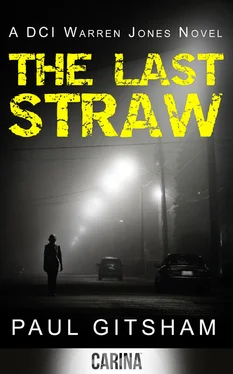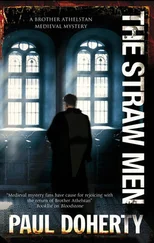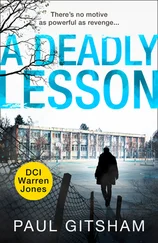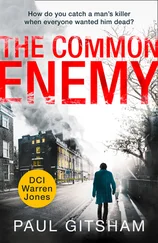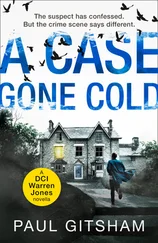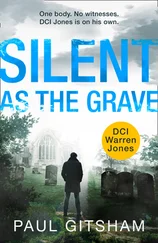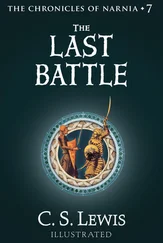Paul Gitsham - The Last Straw
Здесь есть возможность читать онлайн «Paul Gitsham - The Last Straw» — ознакомительный отрывок электронной книги совершенно бесплатно, а после прочтения отрывка купить полную версию. В некоторых случаях можно слушать аудио, скачать через торрент в формате fb2 и присутствует краткое содержание. Год выпуска: 2014, ISBN: 2014, Издательство: Carina, Жанр: Полицейский детектив, на английском языке. Описание произведения, (предисловие) а так же отзывы посетителей доступны на портале библиотеки ЛибКат.
- Название:The Last Straw
- Автор:
- Издательство:Carina
- Жанр:
- Год:2014
- ISBN:9781472094698
- Рейтинг книги:3 / 5. Голосов: 1
-
Избранное:Добавить в избранное
- Отзывы:
-
Ваша оценка:
- 60
- 1
- 2
- 3
- 4
- 5
The Last Straw: краткое содержание, описание и аннотация
Предлагаем к чтению аннотацию, описание, краткое содержание или предисловие (зависит от того, что написал сам автор книги «The Last Straw»). Если вы не нашли необходимую информацию о книге — напишите в комментариях, мы постараемся отыскать её.
The Last Straw — читать онлайн ознакомительный отрывок
Ниже представлен текст книги, разбитый по страницам. Система сохранения места последней прочитанной страницы, позволяет с удобством читать онлайн бесплатно книгу «The Last Straw», без необходимости каждый раз заново искать на чём Вы остановились. Поставьте закладку, и сможете в любой момент перейти на страницу, на которой закончили чтение.
Интервал:
Закладка:
Opening one at random, Warren saw that it was a multi-purpose diary. The front page had the usual personal information, filled in by what he was beginning to recognise as the professor’s neat script. After that, a few pages of information such as mini calendars and random trivia including international telephone dialling codes and time zones were followed by a standard day-to-a-page work diary. The final few dozen pages were given over to contact numbers and addresses. Leafing randomly through the pages, Warren saw that the days were mostly filled with to-do lists and appointments, some personal such as “Dentist 10 a.m.”, most work-related. A few pages had scribbled technical notes and cryptic reminders.
As he looked at them he was reminded of the scene that had greeted him Friday night. The laptop, screen glowing, splattered with blood. The curiously clean space next to the computer…
“Simon, I don’t suppose you know if your dad used an external mouse on his laptop do you?”
Simon shrugged. “Not that I saw at home. Although Dad wasn’t much of a computer expert, he was competent enough at operating one. I think he just used the built-in trackpad. Of course, he may have used one at work, but I don’t see why.”
So, it was unlikely to be a space for a mouse-mat, then. Had Tunbridge’s organiser been next to the computer? Had his attacker taken it? And if so, what was in it that was so valuable?
“Do you mind if I take these diaries, just in case?”
Another shrug. “Help yourself, Chief Inspector.” A sudden thought occurred to him. “If you are going to check his emails, you’ll probably save yourself a lot of time if I give you his password.”
Warren could barely conceal his surprise. Simon smiled, slightly embarrassed. “It’s no big secret. I told you, Dad was a complete novice with computers. He used the same password for everything. Not only that, he was the world’s slowest typist. Two-finger typing would have been an improvement. It’s a good job they employed typists back when Dad did his PhD otherwise he’d still be writing his thesis now.”
Warren dug out his notepad and pen. “If you can give me his password that would be really helpful.”
“Well, you won’t need that, I shouldn’t think. His password was just that.”
“Just that? One word or two words?”
“No, you don’t understand. It was just that — ‘password’. If the computer demanded something more robust he just put the first letter as a capital and a number at the end. Like I said, Dad wasn’t very good with computers.”
Warren shook his head, not trusting himself to speak.
Chapter 21
After leaving the Tunbridge’s house, Jones went straight to his appointment at the university’s IT department. Unlike the ageing Biology department, the building was brand-new, twenty-first-century chic, all glass and chrome and air conditioning. Truth be told, Warren rather liked this type of design, although he was careful not to voice that opinion too loudly around some of Susan’s more aesthetically minded friends. Warren regarded himself as a pragmatic man. On the one hand, he appreciated the great beauty inherent in Britain’s old buildings. He even had a rotating computer background showcasing photographs of some of the most stunning architecture across the British Isles. On the other hand, when it came to places to live and work, give him everything that the modern age had to offer. Why waste good money on an antique, hand-carved solid oak desk — like the one that Susan’s sister had just bought — when less than one hundred pounds could buy you a robust, self-assembly unit from IKEA with twice as many drawers, an easily accessible cupboard to hide the printer in and cable tidies? Not only that, Warren could slurp coffee to his heart’s content and not worry about the cost of French-polishing. After a journey home full of robust debate after admiring Felicity’s new desk, Warren and Susan had agreed to disagree.
Like many organisations, UME hid its IT support departments in the basement, away from prying eyes. This, Warren learned from the interactive display that dominated the building’s lobby, was as much to do with cost efficiency as keeping the geeks out of sight. The rows and rows of file-servers and processors that kept the university’s IT infrastructure ticking over generated phenomenal amounts of heat. In order to avoid spending even more money on expensive air conditioning to keep everything cool, the building funnelled the heat up through the centre of the building. In winter it was enough to reduce the building’s heating bill by half. In the summer, the unwanted hot air was used to generate electricity.
The display was on its third rotation before the receptionist finally announced that the university technician that had been working with the specialists from Welwyn’s Forensic Computer Unit had been tracked down.
“Sorry, I was out on an urgent call on the other side of campus,” he apologised as he shook Warren’s hand. The crumbs in the young man’s goatee beard suggested otherwise, but Warren let the white lie slide. Following the young man down the corridor, Warren mentally compared the young computer expert against his personal database of stereotypes and prejudices. Very young for such a senior role — check; somewhat socially awkward — check; badly dressed — a matter of opinion, Warren decided. He wasn’t wearing a suit and tie, but his shirt was sober and ironed and he wore pressed trousers and leather shoes. Poor personal hygiene — crumbs aside, all Warren could smell was soap and a faint whiff of spicy cologne. All in all another prejudice debunked, Warren decided.
After walking a lengthy distance along softly carpeted corridors past numerous offices, they eventually stopped at yet another unremarkable office door. Without knocking, his guide, Jeremiah walked straight in. For the first time since entering the building Warren finally felt his expectations were being met. The atmosphere in the room was a mixture of stale coffee, warm electronics and even warmer bodies. The room was clearly some sort of repair room. Vertical racks of plastic boxes on runners stretched to the ceiling, full of equipment or components. Each container had a sticky label, some of which made sense to Warren, others could have been written in Sanskrit for all they meant to him.
In the centre of the room was a large workspace, and on it sat Tunbridge’s laptop. It was recognisable as Tunbridge’s because, despite being cleaned after its physical forensic examination, dark, bloody stains still marred the plastic body of the machine. The physical state of the machine was irrelevant, Warren saw, as the hard drive had been removed from the laptop and attached instead to another laptop, this one with the familiar Herts and Beds Major Crime Unit logo on its lid. Network and power cables snaked their way to wall-mounted sockets.
Hunched in front of the laptop was the tallest person Warren had ever seen. As he looked at the man Warren decided that if he were ever asked to describe this individual in one word, that word would have to be ‘long’. From his impossibly lengthy legs, somehow folded under the desk, to his spindly fingers and oval face, it was as if the man had been stretched vertically.
Without standing up — he had no need to: his arms could easily reach Warren standing near the door — the man put out a huge hand. “Pete Robertson, Forensic IT,” he announced, in a surprisingly high-pitched voice. Warren returned the courtesy, marvelling at how his hand was swallowed up by the giant sitting in front of him. Robertson was a civilian worker, Warren noted from his badge. That wasn’t unusual — most of the force’s computer specialists were recruited from outside the police. Nevertheless, Warren found himself wondering if the police still had height limits for new recruits. He strongly suspected that Robertson would not have been within those limits.
Читать дальшеИнтервал:
Закладка:
Похожие книги на «The Last Straw»
Представляем Вашему вниманию похожие книги на «The Last Straw» списком для выбора. Мы отобрали схожую по названию и смыслу литературу в надежде предоставить читателям больше вариантов отыскать новые, интересные, ещё непрочитанные произведения.
Обсуждение, отзывы о книге «The Last Straw» и просто собственные мнения читателей. Оставьте ваши комментарии, напишите, что Вы думаете о произведении, его смысле или главных героях. Укажите что конкретно понравилось, а что нет, и почему Вы так считаете.
